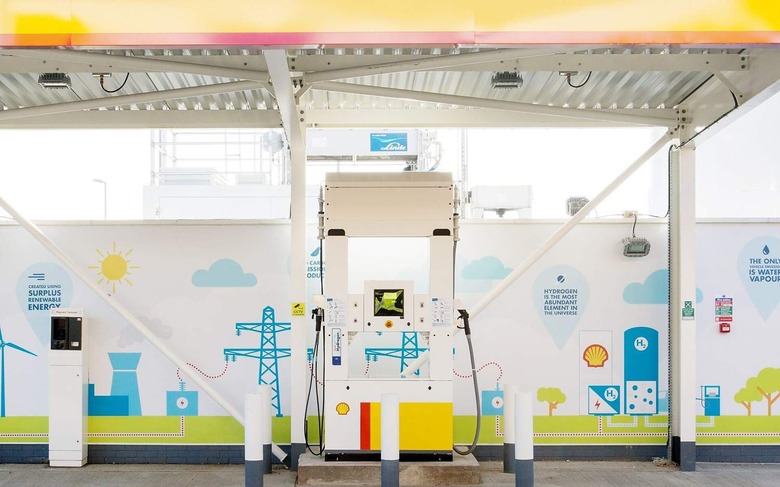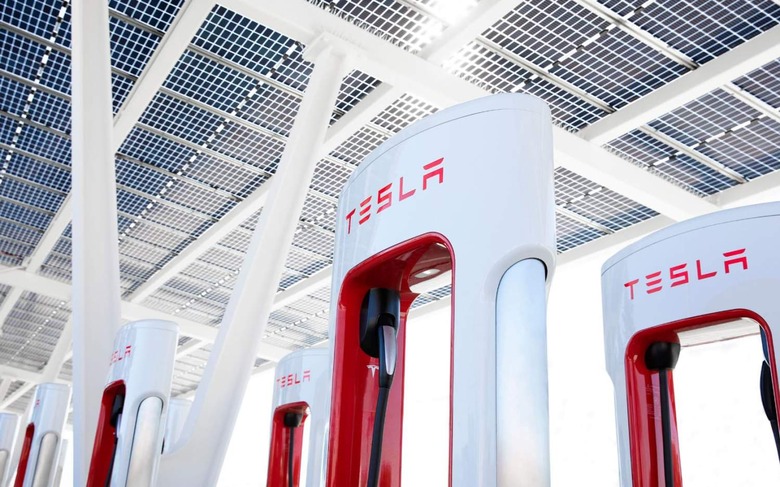Biden Opens Federal Wallet To Buy Half A Million New EV Chargers
The Biden Administration wants to build out a national network of electric vehicle chargers that will dramatically increase the number of places that drivers can plug in, part of the White House's huge $2 trillion Infrastructure Plan announced today. The wide-reaching strategy covers everything from replacing and repairing neglected highways through to ensuring equal access to high-speed internet, but saves some cash to fill in gaps in EV charging.
It's certainly an area where expects, automakers, and drivers alike agree that more should be done. Although sales of electrified vehicles such as all-electric BEVs and plug-in hybrids are growing, that's only highlighting the paucity – and unpredictability – of public charging provisions.
That's not just a challenge for those wanting to use their EVs on road trips. Potential urban electric vehicle owners typically cite an absence of charging provision as a key challenge preventing them from picking an EV. With the majority of charging taking place at home or the office, not having a garage or a dedicated parking space with charger provisions can be a dealbreaker for BEVs.
Biden's Infrastructure Plan will address that with a $174 billion investment into the electric vehicle transition. Part of that will go on grant and incentive programs for state and local governments, along with the private sector, to build a national network of EV chargers. The goal is 500,000 installed by 2030.

Some of the money will also go on promoting American EVs. "U.S. market share of plug-in electric vehicle (EV) sales is only one-third the size of the Chinese EV market. The President believes that must change," the White House said today in a fact sheet about the Infrastructure Plan. "He is proposing a $174 billion investment to win the EV market. His plan will enable automakers to spur domestic supply chains from raw materials to parts, retool factories to compete globally, and support American workers to make batteries and EVs."
Meanwhile, there'll be new point of sale rebates and tax incentives, which will specifically encourage the purchase of American-made EVs, the White House says.
Currently, the federal government runs a tax incentive for new electric vehicle purchases. That can be worth up to $7,500, though the credits taper after automakers reach a certain number of EV sales. Currently, only Tesla and GM have reached that point. States typically add their own incentives and rebates on top, though values vary.

There are multiple companies attempting to fill in the electric vehicle charger gaps currently, including Electrify America, ChargePoint, and EVgo. At the same time, Tesla's Supercharger network is perhaps the best known, though only drivers of the automaker's own EVs are eligible to recharge there. It's a strategy we've seen other automakers begin to adopt too: Rivian will have its own chargers as it readies its first EVs for release this year, and Jeep plans to install chargers in leisure areas that only Jeep drivers will be able to use.
Of course, there's more to it all than just plugging in a charger into an outlet. DC fast chargers – which offer considerably faster speeds than home charging might – are generally acknowledged as the key to maximizing EV adoption. With them, depending on their potency and the capabilities of the vehicle plugged in, tens to hundreds of miles of range can be added in as little as 10 minutes. However, the chargers themselves are expensive, and they require equally-expensive installation and provisioning with high-voltage power connections.
